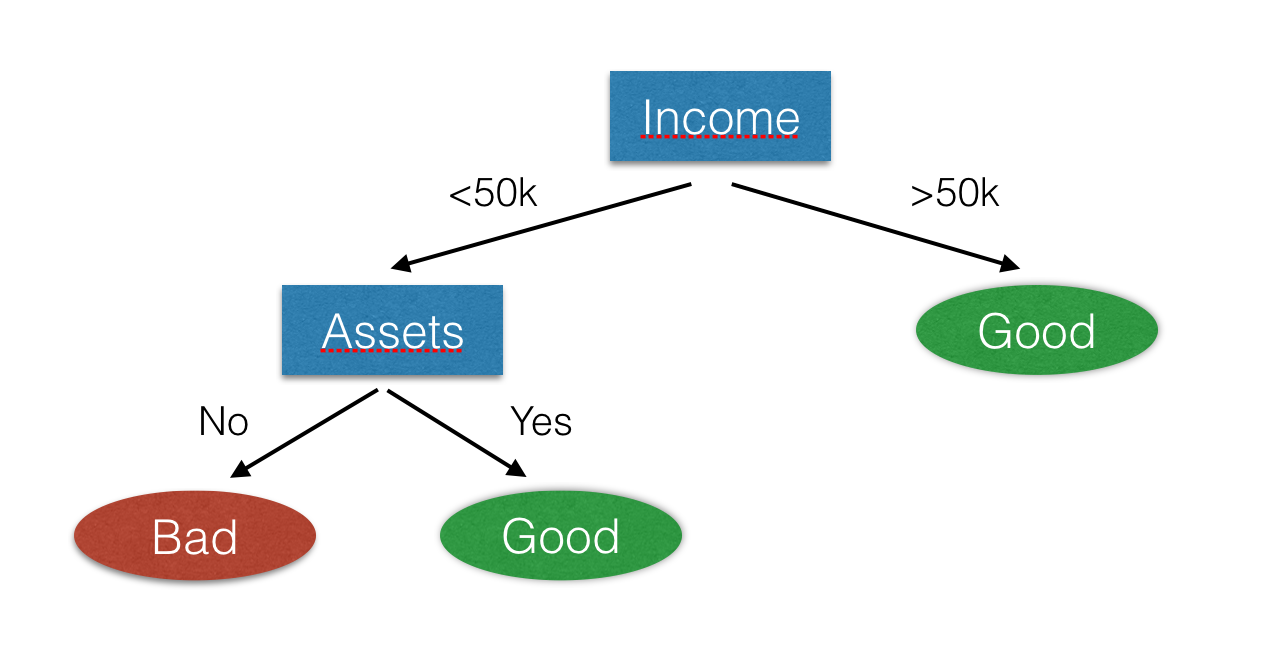Decision Trees
Classification algorithms are essential part of machine learning applications. These algorithms known as classifiers. Lots of different classification algorithms exists in literature, the well known one is Decision Trees. Decision Trees are decision support systems that simply tries to find decision rules to classify instances. Rules are computed within entropy measure. If entropy of a feature is more than others than we add this feature to the tree as a decision rule.

Decision trees are not very accurate classifiers. Because it's decision boundaries are strict. In real world problems, we need more complex (sometimes non-linear) decision boundaries. To make this non-linear we can use different classification algorithms such as Artificial Neural Networks (Perceptrons). Or in a short way, we can use a different approach to make our classification results better. This method called "ensembling". Essential idea behind the ensembling is, using different classifiers and combine their results. In real life we can assume that, generally a group of people can make better decisions than a single individual.
Random Forests
As we can infere from name, Random Forest method includes lots of trees. For example, we have a dataset with 5000 samples and 3 classes(C1,C2,C3). In classical decision tree algorthm take all the samples and generate just one tree. But in random forests, we divide the dataset into n parts and implement for each subset of instances and train n decision trees. In evaluation phase of model, test instance classified by all the trees in forest. At the and, all the results combined. For example results of trees is something like this. Tree#0 -> Predicted: C1 Tree#1 -> Predicted: C1 Tree#2 -> Predicted: C1 Tree#3 -> Predicted: C2 Tree#4 -> Predicted: C1 Tree#5 -> Predicted: C1 Tree#6 -> Predicted: C3 Tree#7 -> Predicted: C2 Tree#8 -> Predicted: C1 Tree#9 -> Predicted: C2 It's easy to say that our instance is a member of C1, because most of the trees says that.
Results
If you are working on a classification task, using different classifiers and combining them improves your accuracy. For further information about this topic you can google this terms Ensembling, Ensemble Learning, Bagging, Boosting, Random Forest